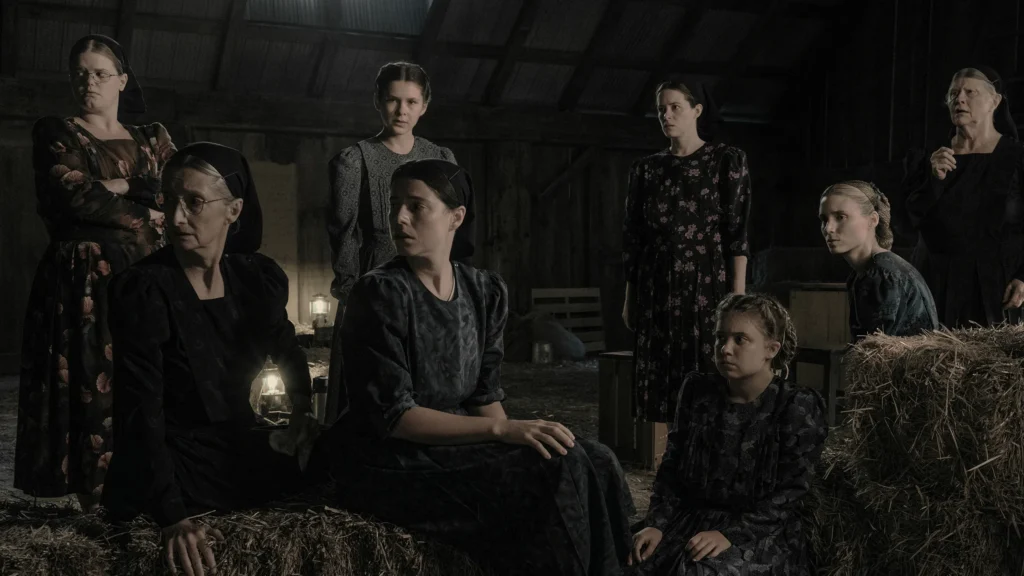The criminology researcher examines the emotional responses triggered by films that sensitively portray trauma.

Sophie Leclair-Tremblay
How can cinema address the traumas associated with domestic violence in a way that promotes healing? Anne-Marie Nolet, whose academic work focuses on violence against women, is investigating how survivors engage with films that depict intimate partner violence in all its forms.
An associate professor at the Université de Moncton and research advisor for SAS-Femmes—a collective focused on the safety, autonomy, and health of women and girls—Nolet is also completing a master’s degree in cinema with a research-creation focus at the Université de Montréal. Working on issues of violence against women is, for her, a lifelong mission. It is also what led her to turn to cinema after completing her doctoral and postdoctoral work in criminology.
Following her criminological research, Nolet sought to diversify the ways in which she could address violence against women. Her interest in how survivors receive these cinematic works stems from her desire to make sure that watching such films doesn’t retraumatize them. She hopes to identify the kinds of works and viewing contexts that can offer survivors a reparative experience. Her goal is to make cinema a resource that helps survivors revisit their trauma in constructive, supportive ways—while ensuring the works remain bearable.
"Cinema reflects society, but it also contributes to its healing"
In criminology, Nolet’s main area of expertise is the social networks surrounding women experiencing coercive control in intimate relationships. Her research has allowed her to develop a broader understanding of the contexts in which women experience violence and seek to escape it. She brings that same perspective to cinema, viewing film as a medium that not only reflects society but also shapes the environments in which survivors and their communities live.
She is especially interested in how films can avoid objectifying victims and instead portray trauma with sensitivity. What draws her in is the healing potential of films when they are viewed in a safe, compassionate, and guided setting—where the viewer’s emotional experience is prioritized.

Representing domestic and sexual violence on screen while emphasizing the support available to women, Nolet believes, makes it possible to “use cinema to explore something other than narratives that objectify women.” “Cinema reflects society,” she adds, “but it also contributes to its healing,” asserting that film has the power to heighten the public’s sensitivity to trauma.
"Toward Research on Survivors’ Reception of Trauma-Related Films"
The intersection of cinema and criminology in Nolet’s work has led to a new collaborative project currently in development with cinEXmedia. In addition to Nolet, the research team includes Marie-Marthe Cousineau, Éliane Dussault, Natacha Godbout, and Santiago Hidalgo. Together, they are designing a study focused on how survivors respond to films that address domestic violence in a sensitive manner.
Adopting a phenomenological approach, she plans to carry out the study through film-viewing groups established in collaboration with women’s shelters. Her analysis will draw on the work of theorists Laura U. Marks and Vivian Sobchack, both of whom explore phenomenology in relation to cinema.
The project aims to create safe and supportive viewing environments where women can watch trauma-sensitive films alongside trained professionals and then discuss their emotional responses. As an example, Nolet cites Women Talking (2022), directed by Canadian filmmaker Sarah Polley, which she views as “a film with the potential to support survivors’ healing.”
The strength of the project lies in the complementary expertise of the research team, which spans partnership-based research, clinical trauma support, film reception analysis, and trauma-informed approaches. This interdisciplinarity, Nolet argues, “has the advantage of generating new knowledge across fields that rarely engage in dialogue.”
Marie-Marthe Cousineau, a full professor at the Université de Montréal’s School of Criminology and director of SAS-Femmes, is also discovering cinema in a new light through this research initiative, which examines how victims’ realities are translated to the screen. For her, cinema “has the capacity to expose and denounce the violence embedded in social structures that disadvantage women.” She believes that any attempt to mediate or represent victims’ experiences through an external lens must be accompanied by “a critical reflection on how such representations may affect survivors themselves.”
Updates on this study will be shared on the Instagram page @cinema.sensible, launched with the support of knowledge mobilization specialist Éliane Dussault, one of the project’s key collaborators.


